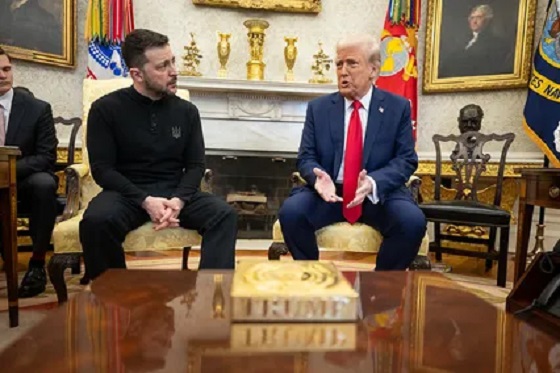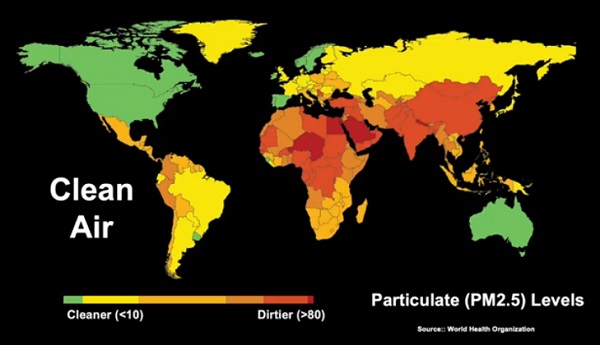2025 Federal Election
Mark Carney refuses to clarify 2022 remarks accusing the Freedom Convoy of ‘sedition’

From LifeSiteNews
Mark Carney described the Freedom Convoy as an act of ‘sedition’ and advocated for the government to use its power to crush the non-violent protest movement.
Canadian Prime Minister Mark Carney refused to elaborate on comments he made in 2022 referring to the anti-mandate Freedom Convoy protest as an act of “sedition” and advocating for the government to put an end to the movement.
“Well, look, I haven’t been a politician,” Carney said when a reporter in Windsor, Ontario, where a Freedom Convoy-linked border blockade took place in 2022, asked, “What do you say to Canadians who lost trust in the Liberal government back then and do not have trust in you now?”
“I became a politician a little more than two months ago, two and a half months ago,” he said. “I came in because I thought this country needed big change. We needed big change in the economy.”
Carney’s lack of an answer seems to be in stark contrast to the strong opinion he voiced in a February 7, 2022, column published in the Globe & Mail at the time of the convoy titled, “It’s Time To End The Sedition In Ottawa.”
In that piece, Carney wrote that the Freedom Convoy was a movement of “sedition,” adding, “That’s a word I never thought I’d use in Canada. It means incitement of resistance to or insurrection against lawful authority.”
Carney went on to claim in the piece that if “left unchecked” by government authorities, the Freedom Convoy would “achieve” its “goal of undermining our democracy.”
Carney even targeted “[a]nyone sending money to the Convoy,” accusing them of “funding sedition.”
Internal emails from the Royal Canadian Mounted Police (RCMP) eventually showed that his definition of sedition were not in conformity with the definition under Canada’s Criminal Code, which explicitly lists the “use of force” as a necessary aspect of sedition.
“The key bit is ‘use of force,’” one RCMP officer noted in the emails. “I’m all about a resolution to this and a forceful one with us victorious but, from the facts on the ground, I don’t know we’re there except in a small number of cases.”
Another officer replied with, “Agreed,” adding that “It would be a stretch to say the trucks barricading the streets and the air horns blaring at whatever decibels for however many days constitute the ‘use of force.’”
The reality is that the Freedom Convoy was a peaceful event of public protest against COVID mandates, and not one protestor was charged with sedition. However, the Liberal government, then under Justin Trudeau, did take an approach similar to the one advocated for by Carney, invoking the Emergencies Act to clear-out protesters. Since then, a federal judge has ruled that such action was “not justified.”
Despite this, the two most prominent leaders of the Freedom Convoy, Tamara Lich and Chris Barber, still face a possible 10-year prison sentence for their role in the non-violent assembly. LifeSiteNews has reported extensively on their trial.
2025 Federal Election
NDP’s collapse rightly cost them official party status

This article supplied by Troy Media.
 By Michael Taube
By Michael Taube
Official party status requires 12 seats. The NDP got seven. End of story
Rules are rules.
That, in a nutshell, is why the NDP wasn’t granted official party status in the House of Commons on Monday. Prime Minister Mark Carney and the
Liberals, to their credit, made the right decision.
Let’s examine why.
The 1963 Senate and House of Commons Act passed an amendment that gave an annual allowance to party leaders other than the prime minister and
leader of the Opposition. In doing so, the Canadian government had to establish what constitutes a “political party.” The definition they came up with was a sensible one: it had to have a “recognized membership of 12 or more persons in the House of Commons.”
This important amendment is still used today.
The NDP fell from 24 to a paltry seven seats in last month’s federal election. (There are a total of 343 seats in the House of Commons.) They finished with 1,234,673 votes, or 6.29 per cent, which was behind the Liberals, Conservatives and Bloc Québécois. Party leader Jagmeet Singh, who had represented the former Burnaby South riding since 2019, finished a distant third in the newly created Burnaby Central riding and resigned.
The NDP’s seven seats is well below the 12-seat requirement needed for official party status. This means Canada’s socialist alternative won’t be able to ask questions in the House of Commons and will lose out on money for research purposes.
Or, to put it another way, they’re plumb out of luck.
Hold on, some people said. They pointed out that the NDP’s seat count and popular vote only plummeted because many progressive voters backed Carney and the Liberals as the best option to counter U.S. President Donald Trump and his tariffs. They felt that the NDP’s long history as a champion for unions and the working class should count for something. They suggested there should be an exception to the rule.
Guess what? They’re wrong.
This is the worst election result in the party’s history. Even its predecessor, the Co-operative Commonwealth Federation (CCF), did marginally better in its first campaign. The CCF won seven out of 245 seats—and earned 410,125 votes, or 9.31 per cent—in the 1935 election. Party leader J.S. Woodsworth, who had represented the riding of Winnipeg North Centre as an Independent Labour MP since 1925, comfortably held his seat.
Meanwhile, this won’t be the first time they’ve ever lost official party status.
The NDP dropped from 43 to nine seats in the 1993 election. It was a dismal showing, to say the least. There was a suggestion at the time that then-party leader Audrey McLaughlin, the first woman to lead a party with political representation in Canada’s House of Commons, deserved a better fate. While the NDP certainly came closer to achieving the 12-seat requirement in this particular election, Prime Minister Jean Chrétien and the Liberals decided against granting them official party status.
Why? As I mentioned earlier, rules are rules.
Then again, British pilot Harry Day notably told his fellow flying ace Douglas Bader in 1931, “You know my views about some regulations—they’re written for the obedience of fools and the guidance of wise men.”
Does this mean that individuals and organizations who follow rules are, in fact, fools? Not at all. While certain rules in a liberal democratic society can range from slightly questionable to utterly ridiculous, they’re usually put in place for a specific purpose.
In the case of the House of Commons, it’s to ensure that a bar has been set with respect to political representation. Is 12 seats the right number? That’s difficult to say. It certainly prevents small protest parties and one-issue parties that unexpectedly win a tiny number of seats in an election from acquiring power and status right off the bat. They need to win more seats and grow in size and stature to reach a point of respectability. Most of them never reach this point and disappear while others float in a constant state of mediocrity like the Green Party of Canada. ’Tis the nature of the political beast.
One final point. If Singh and the NDP had reached double digits in total number of seats in 2025, a solid case could have been made in favour of official party status. If they had finished with 11 seats, it would have almost been a lock. Neither scenario ultimately materialized, which is why Carney and the Liberals did exactly what they did.
Michael Taube is a political commentator, Troy Media syndicated columnist and former speechwriter for Prime Minister Stephen Harper. He holds a master’s degree in comparative politics from the London School of Economics, lending academic rigour to his political insights.
Troy Media empowers Canadian community news outlets by providing independent, insightful analysis and commentary. Our mission is to support local media in helping Canadians stay informed and engaged by delivering reliable content that strengthens community connections and deepens understanding across the country.
2025 Federal Election
Judicial recounts give Conservatives 2 more seats, keeping Liberals short of majority

From LifeSiteNews
After a judicial recount, Conservative candidate Kathy Borrelli has officially won over Liberal incumbent Irek Kusmierczyk, in the Ontario riding of Windsor-Tecumseh-Lakeshore.
Judicial recounts from the 2025 federal election have given the Conservative Party two new seats, with one candidate winning by just four votes.
After a judicial recount, Conservative candidate Kathy Borrelli has officially won over Liberal incumbent Irek Kusmierczyk, in the Ontario riding of Windsor-Tecumseh-Lakeshore.
Borrelli got 32,090 votes, with Kusmierczyk getting 32,086 votes, and NDP candidate Alex Ilijoski getting 4,240 votes.
In the Newfoundland riding of Terra Nova-The Peninsulas, Conservative candidate Jonathan Rowe beat out Liberal Anthony Germain by just 12 votes after a recount with the initial result showing a Liberal victory.
The new election results mean the Conservatives now have 144 seats with the Liberals at 169, three short of a majority.
Judicial recounts are automatically triggered when the margin of victory for a candidate is less than 0.1 percent of valid votes.
While these recounts have favored the Conservatives, others have gone in the Liberal Party’s favor.
A May 16 judicial recount switched the southern Ontario riding of Milton East-Halton Hills South to the Liberals with a 21-vote victory over the Conservatives.
Overall, the election results have been a big blow to the Conservative Party, which on top of losing the election also saw its leader, Pierre Poilievre, fail to win his long-held seat. However, Poilievre is expected to run in a yet-to-be-announced by-election in Alberta to reclaim a seat in Parliament.
-

 International6 hours ago
International6 hours agoIsrael’s Decapitation Strike on Iran Reverberates Across Global Flashpoints
-

 Business1 day ago
Business1 day agoThe carbon tax’s last stand – and what comes after
-
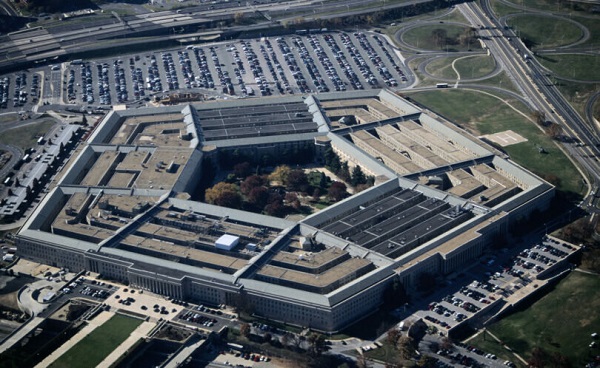
 International1 day ago
International1 day agoPentagon agency to simulate lockdowns, mass vaccinations, public compliance messaging
-

 Business15 hours ago
Business15 hours agoTrump: ‘Changes are coming’ to aggressive immigration policy after business complaints
-

 illegal immigration15 hours ago
illegal immigration15 hours agoLA protests continue as judge pulls back CA National Guard ahead of ‘No Kings Day’
-
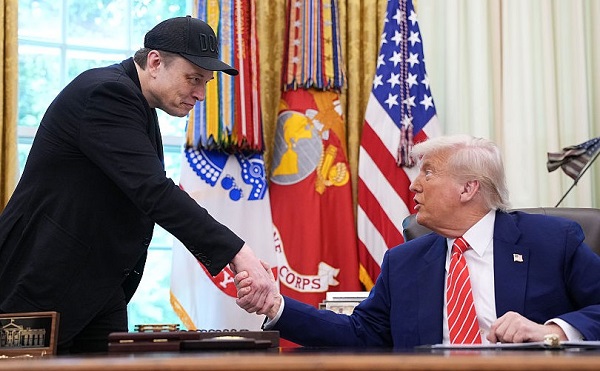
 International2 days ago
International2 days agoElon Musk expresses ‘regret’ over attacks on Trump that ‘went too far’
-

 National1 day ago
National1 day agoCarney promotes MP instrumental in freezing Freedom Convoy donors’ bank accounts
-
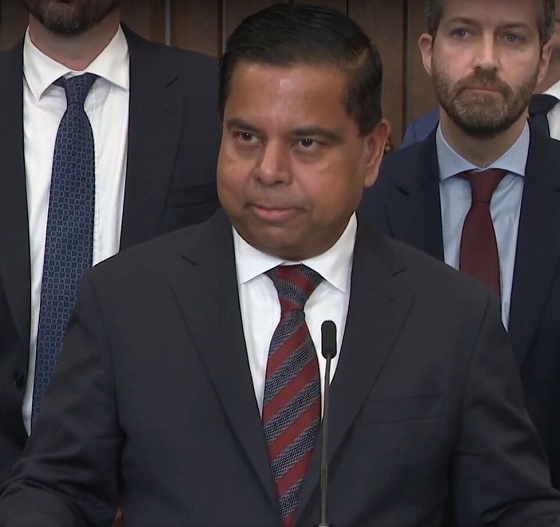
 Business2 days ago
Business2 days agoJustice Centre launches new petition: Keep cash legal and accessible. Stop Bill C-2




